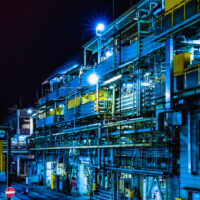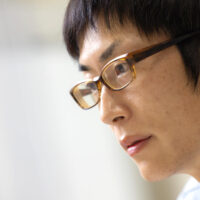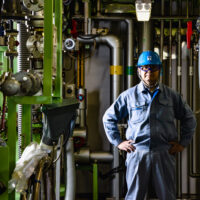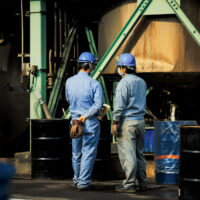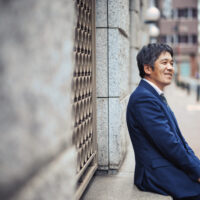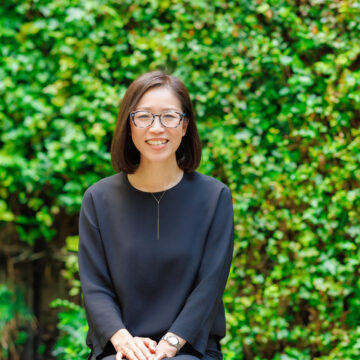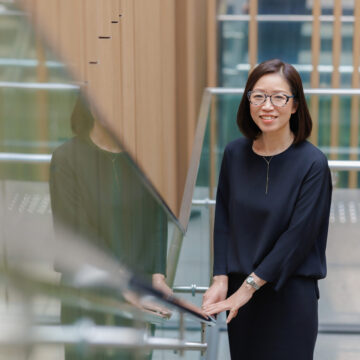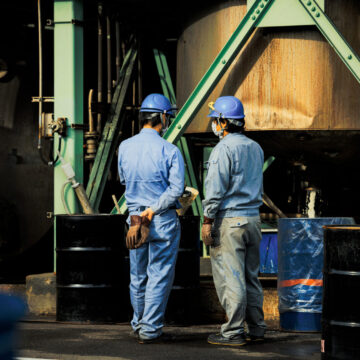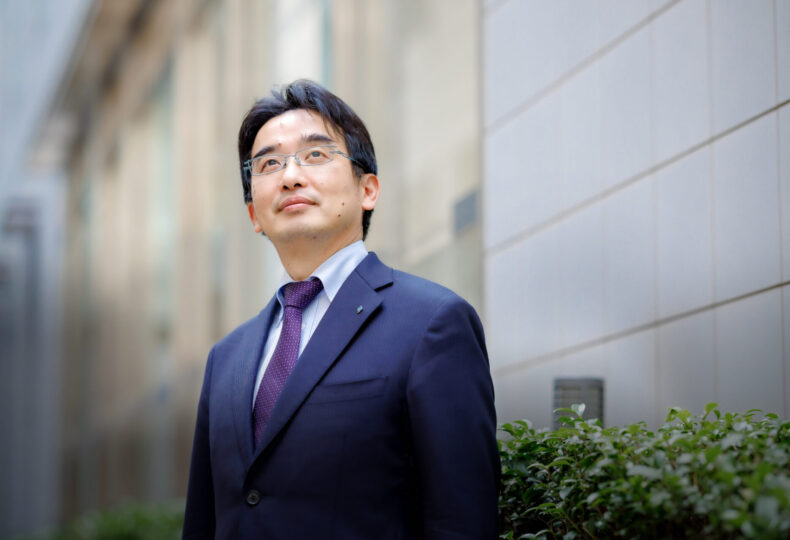
MANAC’s Global Strategy Envisioned by a Business Specialist
MANAC (Shanghai) Co., Ltd., also known as MANAC Shanghai for short, is a subsidiary of MANAC in Shanghai. Mr. Fumio Kodoi (pictured above) was assigned to work in Shanghai for this subsidiary when it was first established about seven years ago, where he later became general manager (president). He has since returned to Japan and is starting his work at the MANAC head office. The mission given to Mr. Kodoi by the company is to expand global sales.
As MANAC’s direct sales outside Japan remain under 10% of total sales, there is no question of the importance of increasing the percentage of global sales in order to achieve growth. Just how will MANAC’s global strategy evolve in the future? We sat with Mr. Kodoi to find out.
contents
Three smartphones crammed into his suit pockets…
It happened as we were preparing to take photos for this article. With Mr. Kodoi’s suit pockets bulging, we asked if he could empty them for the shoot. He proceeded to take one thing out, then another, and yet another. As he pulls out three smartphones, four pens, and a notepad, he explains, “Oh, these are my phones for work, personal use, and for going abroad.”
Out of the four pens he pulled out, we notice that the coating has peeled off the grip part of one of them. “Ah, this pen is from an important colleague of mine. It’s quite worn out, but I can’t let go of it. It writes very nicely, and it just means a lot to me.”
Meet the business specialist, known for strongly valuing connections between people. Since returning to Japan, Mr. Kodoi’s title has become Department Manager of the Overseas Business Development Department.
He described how the company asked him to leverage his experience working in China to pave the way with his own approach to global sales.
Seven years of ups and downs in China
In the past, when China was still a developing country, cheap labor attracted many manufacturing companies from around the world to build factories, earning China a reputation as the “world’s factory.” However, when Mr. Kodoi was first assigned to work in China around 2016, the country was transforming from the “world’s factory” into the “world’s marketplace,” consuming a major share of the world’s products and goods.
The mission for MANAC Shanghai, MANAC’s first overseas business base, is to expand MANAC’s global business and develop new business, including in China. However, when MANAC Shanghai was first established, the new business base also served an important role in selling the group’s products manufactured at its Nanjing factory to customers in Japan. MANAC Shanghai’s sales were growing quickly, but in 2018 the factory was sold to a Chinese company. Mr. Kodoi reflected on this period.
“The products we relied on for sales just vanished before our eyes. After tireless discussions with local staff members, we decided to start selling MANAC’s products related to flame-resistant materials. And to make this happen, we needed to rev up our sales activities.”
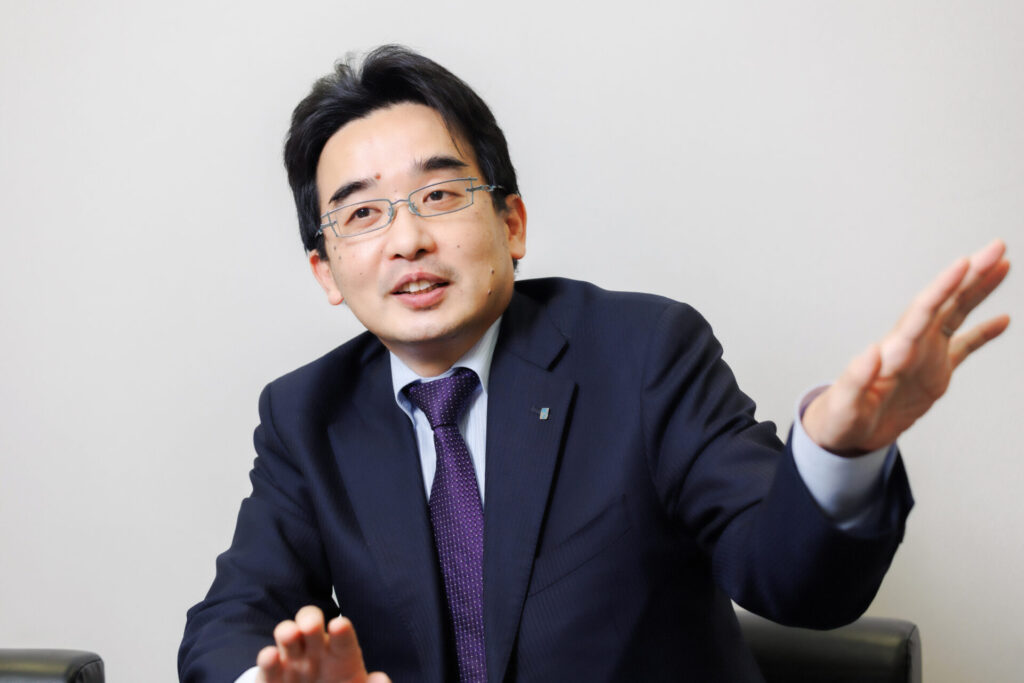
There was just one problem, as Mr. Kodoi explained, “It takes time to earn people’s trust in China.” Luckily, talks that had started in 2016 with a client company were also beginning to pick up steam.
Other promising developments awaited just over the horizon. Although there were many chemical companies in China, a significant portion had poor production management and wastewater treatment processes at that time. When the Chinese government tightened regulations against such companies, production costs rose, and one after another, companies ended up shutting production down altogether. Further, because the Chinese government suspended new chemical industrial park development, the number of companies newly joining dwindled. The flame retardants that MANAC Shanghai was starting to market were the same materials commonly used in electrical appliances and other products, and so many Chinese companies also manufactured them. But with the rise in production costs and chemical company bankruptcies, the number of rival companies had shrunk.
Mr. Kodoi explained further. “MANAC’s flame retardants are blended with resins by downstream compounders to make flame-resistant compounds, so high quality and consistency are the selling points of our flame retardants. The costs of our flame retardants are comparatively higher than other local products. But with rising household income in China, demand for high-quality electronic products was also growing. As a result, demand for MANAC’s high-value-added products also began to climb.”
It did not take long for the business staff members of MANAC Shanghai to recover from the tremendous setback to the point that they could, once more, contribute to the group’s overall performance.
Remaining focused on trends in China
Mr. Kodoi explained how he still keeps a close eye on trends in China, the “world’s marketplace,” even after returning to Japan. Foreseeing a rush of new demand from China moving forward, Mr. Kodoi put forth polyimide monomers as one area poised for solid growth. Polyimide monomers are used as electronic materials in smartphones, computers, and electric vehicles (EVs).
About TAHQ polyimide monomers
Mr. Kodoi explained. “Annual sales of new vehicles in China amount to 26 million, a quarter of which are EVs. The number of new EVs sold annually in China exceeds the total number of EVs in Japan. Chinese EV manufacturers have their sights set on global sales, so naturally, demand for polyimide monomers is expected to grow.”
Marketing pharmaceutical materials in the EU, with potential in the US for electronic component materials
MANAC seeks to expand its business in active pharmaceutical ingredients (APIs) and pharmaceutical intermediates, which Mr. Kodoi aims to market in the EU and the US. Currently, MANAC relies on partner companies to market its products in the EU. However, over the last several years, there have not been any new deals struck in the EU. Against this backdrop, Mr. Kodoi is examining whether MANAC should establish its own marketing base in the EU.
“We still don’t know the answer. But we know that demand for MANAC’s products will grow when potential customers learn about the advantages of our product’s features, technologies, and services. We would likely start by marketing fine chemical products such as simple iodides and bromides, including iodobenzene and p-iodotoluene. Our mission doesn’t end at product sales, so we aim to promote MANAC’s technologies and increase contract numbers for contracted production. This is why we will continue to consider many different avenues.”
Much potential exists in the US for pharmaceutical and electronic materials. The market in India is also expected to see rapid growth. The expansion of global sales, with which Mr. Kodoi has been tasked, is one of the keys to growth at MANAC. With his caring approach to connections between people and his ability to take on uncharted areas of business, this challenge is certainly one for Mr. Kodoi.
Taking a 360-degree approach amid economic decoupling
Friction between the US and China is leading to economic decoupling and increasing geopolitical risks, which presents growing difficulties for Japanese companies in terms of overseas business.
Mr. Kodoi commented on this as well. “There is no mistake about China being the largest market. It is simply an unavoidable fact. It is also a fact that business in other Asian countries and India is largely uncharted for us. But we can’t just sit back and do nothing. Even as we continue to monitor the risks, we aim to take bold steps in forming a 360-degree global strategy and doubling the group’s overseas sales.”
The vision of a business specialist knows no limits, even in the face of growing pressure from the company.



